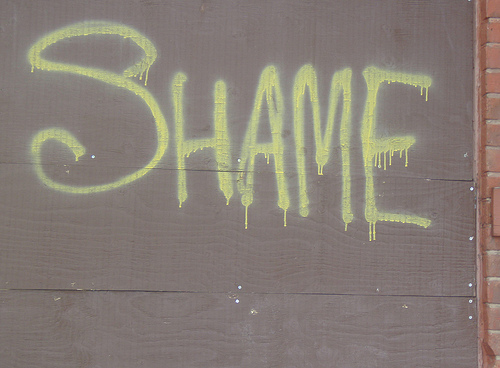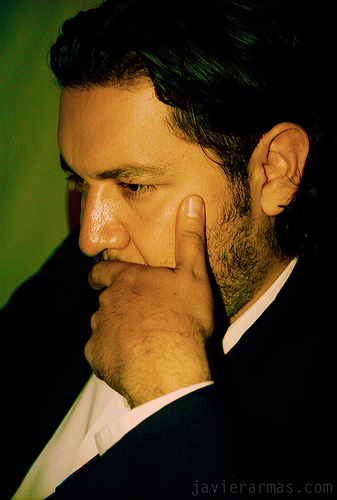Listen to the 7-minute podcast version
Watch a 1-minute introductory video
What do people think when they hear the word “addiction?”
Perhaps things like: “Those other people. The ones with all the problems. Losers. Why don’t they just quit? They must be weak. Probably homeless, certainly worthless, obviously going nowhere. Definitely not someone to be around.” In other words: shame, stigma, and separation.

I’ve spent a lot of time around good people battling addictions. When it started, I was going through recovery for myself, and for my son, and for my wife—at the same time! I kept bumping into incongruities with what I was experiencing in the world of recovery and the misconceptions that seemed prevalent elsewhere. Clearly, a new way of thinking was needed.
It became an epiphany: We need to change how the world thinks about addiction!
I feel so strongly about this that I will be leaving my job to start a new ministry this month. I believe there are millions of people whose lives can be improved, or saved, through this way of thinking.
To get there, a paradigm shift is needed, and it includes 3 truths most people don’t understand.
1. Addiction is a deadly disease, but it can be prevented.
For a long time, it was hard for me to stop drinking. I would put off trying, finally quit for a while, and then rationalize my way back to drinking again. Eventually, with God’s help, I stopped for good.
So, let’s be real about addiction. It is a disease that kills many people, and destroys the lives of others. Dealing with addiction can be hard, and for some the challenge seems insurmountable.
There is no quick fix or easy way to prevent addiction; it requires a lifestyle change. But there is hope, because there is a “top secret formula” for avoiding addiction: the principles taught in recovery work for prevention as well!
Recovery teaches us a positive lifestyle that has been proven over decades by millions of people, and one that is spiritually based. It is a “secret” because only people in recovery know about it. It’s a “formula” because it is a repeatable process we can follow over and over.
The amazing possibilities of using recovery principles to prevent addiction struck me early in my own recovery journey and led to the book STEPS: A Daily Journey to a Better Life. This approach will form the foundation for the new nonprofit ministry I am starting, and it is 1 of the 3 key truths that can help us change how the world thinks about addiction.
2. We all have issues, and we are all addicted to something.
You’ve likely heard that some physical and emotional conditions exist as a spectrum, or a range of symptoms. Autism, attention-deficit disorder, and introversion/extroversion operate this way.
There is an addiction spectrum as well, and we’re all on it. Because we each have things we continue to do even though they have negative consequences. We all have issues, and we are all addicted to something. The spectrum of addiction-like behaviors can be envisioned this way:
- Classic addiction issues, for example alcohol, drugs, and smoking but also activities such as excessive eating, overspending, and pornography.
- Compulsive issues like anxiety, depression, shame, anger, workaholism, control, and pride.
- Emotional issues, which can include worry, insecurity, procrastination, people-pleasing, or habitual dependence on distractions such as social media or television.
- Circumstantial issues, such as codependency or enabling, or having to deal with the tragedy of physical or emotional abuse.

Most people can find themselves, and people they are close to, on that spectrum. Addiction is not an “us versus them” situation. We’re all in this together: me, you, our families, everyone we know.
Years ago, I joined a new men’s small group. On the surface, each guy there seemed to have everything under control. But, after a few months of getting to know each other and sharing my issues with them, it was clear that we all had our own place staked out on the addiction spectrum.
3. Addiction is an opportunity to improve our lives and help other people.
Years ago, as our family dealt with addiction and other tough issues, life at times seemed hopeless. Now, looking back, I wouldn’t change a thing. Through those hard times, our lives were improved and even blessed. We learned tools from recovery we can use for the rest of our lives. Those experiences positioned us to serve others and, in a few weeks, that will become my full-time focus.
If you have issues (you do), know that it’s okay, because we all do. You too can apply principles from recovery to live life better one day at a time, prevent addiction, and serve others as well.
Understand that your family, friends, and coworkers have issues too, whether they allow them to be seen or not. And, in some cases, you may be able to serve as an example and help them as well.
And, together, we can help lessen the shame, stigma, and separation. We can change how the world thinks about addiction.
Question: Where do you see yourself on the addiction spectrum?
Action: If you would like to support the new STEPS ministry to help change how the world thinks about addiction, contact me at stevecward@lifeimprovementsteps.com.
Photo by PinkMoose  Photo by Sundve
Photo by Sundve  Photo by Javier Armas
Photo by Javier Armas 

